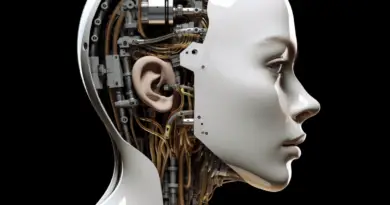5 Brilliant Ways Lawyers Can Use ChatGPT
The AI boom is making changes to the operations of different industries and the legal profession is not left out. The popular ChatGPT, developed by OpenAI, offers lawyers a multitude of opportunities to optimize their productivity, improve client interactions, and expand their legal capabilities. In this article, we will explore five brilliant ways lawyers and law firms can leverage ChatGPT to support their practice and stay ahead of the competition.
5 Ways Lawyers and Law Firms Can Use ChatGPT
With its ability to process vast amounts of legal information and provide valuable insights, ChatGPT is poised to become an indispensable resource for lawyers and law firms seeking to optimize their efficiency and provide enhanced services to their clients.
Note that while ChatGPT can provide valuable assistance in legal tasks, it does not replace the expertise and judgment of qualified legal professionals. Lawyers should always review and validate the information provided by ChatGPT to ensure its accuracy and applicability to specific cases or situations.
Lawyers and Law Firms can use ChatGPT in the following ways;
Legal Research and Case Analysis
ChatGPT can assist lawyers in conducting legal research by providing quick access to relevant statutes, case law, and legal opinions. It can help identify precedents, summarize complex legal concepts, and offer insights into specific areas of the law.
As a lawyer, you can interact with ChatGPT to obtain information and analysis that can support legal arguments or help understand cases more comprehensively.
Document Drafting and Contract Review
Drafting legal documents including contracts, agreements, and legal correspondence can be made easier with ChatGPT. ChatGPT allows lawyers to create early drafts or templates, get suggestions for particular clauses, and check documents for flaws or inconsistencies. This can speed up the document drafting process and of course save time.
Virtual Legal Assistance
ChatGPT or even ChatGPT-powered chatbots integrated into lawyers’ official websites can serve as a virtual legal assistant, providing basic legal guidance and answering common legal questions for clients.
It can help clarify legal terminology, explain legal processes, and provide general information on legal rights and obligations. ChatGPT can also assist in guiding clients through legal forms or procedures, providing a more accessible and efficient client experience.
Compliance and Risk Assessment
Lawyers and law companies can use ChatGPT to examine the risks and compliance needs of both organizations and people. It can help with analyzing potential legal risks in particular situations as well as insights into the applicable legislation and compliance techniques.
This can aid in the proactive identification and resolution of legal difficulties by attorneys and their clients.
Continuing Legal Education
Within law companies, ChatGPT can be utilized as a tool for sharing knowledge and promoting legal education. It can help with the development of engaging educational materials, the delivery of legal news, and case summaries.
Can I Use ChatGPT For Legal Documents?
No, it is not recommended to use ChatGPT for legal documents. While ChatGPT can assist in the drafting and review of legal documents, it is important to exercise caution and use professional judgment when relying on AI-generated content for legal purposes.
ChatGPT can provide initial drafts, suggest language, and help with basic document formatting. However, it is crucial to have a qualified legal professional review and validate the accuracy, completeness, and appropriateness of the final documents.
Legal documents require precision, specificity, and consideration of jurisdiction-specific laws and regulations. AI language models like ChatGPT may not have the most up-to-date information or be aware of recent legal developments.
Moreover, they may not fully understand the nuances and complexities of individual cases or specific legal requirements. ChatGPT does not have the same level of human knowledge to assign Judgement and it lacks background knowledge compared to humans.
Using ChatGPT as a supportive tool for document creation can help improve efficiency, but it does not in any way replace the expertise and knowledge of qualified lawyers.
Ethical Issues to Note When Using ChatGPT as a Lawyer
As AI language models like ChatGPT become increasingly popular, it is essential to address the ethical implications associated with their use.
These considerations are paramount to safeguarding user well-being, mitigating biases, and preventing misuse.
Privacy and Data Protection
Users should handle personal data under applicable privacy laws and regulations. Ensure that any user data collected during the interaction with ChatGPT is protected, used responsibly, and stored securely.
Biases and Fairness
AI models can inadvertently have inherent biases present in the training data. It is crucial to assess and mitigate biases to ensure fair and equitable outcomes. Care should be taken to avoid discrimination based on factors such as race, gender, ethnicity, etc.
User Well-being
Take into consideration the potential impact on users’ well-being. Avoid engaging in conversations that may cause harm, distress, or emotional discomfort to individuals. Be aware of sensitive topics and handle them with care and empathy.
Generally, as a lawyer using ChatGPT, engage in ongoing monitoring, evaluation, and improvement of the AI system. User feedback and regular updates to the model can help address limitations and biases, and improve the overall performance of ChatGPT.
How Would AI Affect The Legal Profession?
AI technology is poised to bring significant changes to the legal profession. Automation capabilities can streamline routine tasks such as document review, contract analysis, and legal research, etc. This can allow lawyers to allocate more time to higher-level, strategic work.
AI-powered tools can analyze large volumes of data, identify patterns, and provide valuable insights for legal decision-making. This can enhance case preparation, improve legal research efficiency, and support more accurate predictions of case outcomes.
Additionally, AI can assist in risk assessment and compliance management, helping lawyers identify potential legal risks for clients and develop appropriate strategies.
Will AI Replace Lawyers?
No, AI is unlikely to completely replace lawyers. While AI technology has the potential to automate certain tasks traditionally performed by lawyers, it can not replace the need for human lawyers.
This is because the legal profession requires a range of skills that go beyond the capabilities of AI, such as strategic thinking, critical analysis, empathy, and ethical judgment.
The legal profession demands much more than just document and data evaluation. The ability to analyze critically, solve complicated problems, and interpret complex law are all skills that lawyers possess.
Understanding the ethical and emotional ramifications of legal matters, cultivating client relationships, and drafting contracts all need an understanding of humans.
Furthermore, the legal field often involves high-stakes matters that require human judgment, creativity, and the ability to understand the social and emotional aspects of legal disputes.
While AI can augment and enhance the work of lawyers, the human element remains essential in providing comprehensive legal services.
To Wrap Up
AI as a tool can help lawyers to augment their work, harness its power to increase productivity, and provide better client experiences.
Ultimately, the collaboration between AI and lawyers will lead to a more effective and dynamic legal practice, where technology and human expertise complement each other for the benefit of clients and the legal profession as a whole.
Related Articles:
Does ChatGPT Give the Same Answer to Everyone?
Best Ways To Use ChatGPT for Essays Without Plagiarizing




